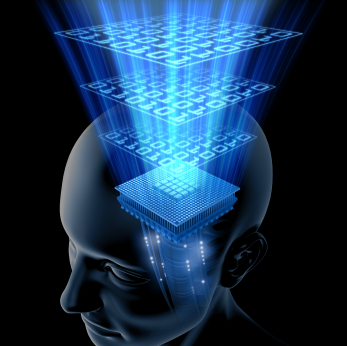Headaches

Headaches are a symptom. They are a symptom that something is wrong. The head is lacking something that it needs or has too much of something that it doesn’t need and the warning light in the form of pain is coming on.
If the tissues inside the head are lacking oxygen, sugar (the brain runs on sugar), water or minerals you can get a headache. Lack of proper blood supply of course accomplishes all of these shortages. Therefore anything that interferes with arterial flow to the brain can cause a headache. This may be a vascular spasm as from a toxin, nerve interference or from a direct blockage by something structural. Since the hormones regulate how much of what is where, glandular malfunction may include headaches as part of the picture. If the body is losing minerals or fluids you may end up with a headache, whether the loss is through the kidneys, too much sweating, diarrhea or some other route. If it’s a low blood sugar problem you have a headache when you go too long without eating or if you eat refined sweets that then cause your blood sugar to “crash.”
Should the body have too much of something you may also have headaches. Too much water or fluid of course causes pressure that may cause head pain. If the blood pressure becomes high it may result in headaches. Mineral imbalances such as too much salt or some other mineral may be a causal factor. Toxins in the blood or tissues is probably the most common culprit behind headaches. This may be simply a buildup of normal metabolic toxins because they are not properly draining from the cells via the lymph and blood. Headache toxins could be in the blood because they are entering from the intestines due to digestion or bowel malfunction. The toxins might be at problem levels because the systems that ordinarily deal with them are not functioning as they should. This includes the liver, kidneys, spleen, immune system, skin and other excreting systems. You may have an external toxin or chemical that is entering the body at a level high enough to cause headaches. In the case of allergies, these toxins or irritants do not have to be all that high due to over-reactions that occur.
Of course there are different types and classifications of headaches, there are sinus headaches for example. These may be from toxins associated with infection. I find that sinus headaches more times than not are related to problems with the nerves that regulate the sinuses. If the nerves to the sinuses are not sending the correct messages you become prone to building up pressure and inflammation easily. The thought behind tension type headaches is that you get pain from the muscles of the skull being tight. I usually find that the reason most of the muscles get tight has to do with “kick back” from an internal organ via the vagus nerve. The vagus nerve exit’s the brain at the base of the skull to travel to many internal organs. If an internal organ such as the heart is “complaining” then this can cause over “firing” of the nerve which then spills over into the muscles and causes spasm and pain. There are “histamine” type headaches related to allergies and a specific type of migraine. Histamine causes fluid imbalances as part of doing the job of trying to “wash away” irritants. Fluids flood areas of irritation and are robbed from other areas. Migraine headaches are related to a vascular spasm that runs out of control. A toxin usually causes the spasm and then a problem with the nerve supply to the artery allows it to run out of control.
All of these headaches reflect imbalance. Too much of something or not enough of something at the right times. Because a headache is a symptom and not a disease in itself it can have many different causes and what fixes a headache in one person may not fix a headache in another person. I can tell you what it is not caused from though. It is not caused from a lack of Tylenol, Aspirin or Ibuprofin in the blood stream. What is necessary to handle a headache is to find out what the imbalance is, what it is from and correct it. This is the approach taken with Cause Point Correlative Testing and it is a very successful approach. Call 260-469-6160 if you are interested in tracking down the cause of your headaches and fixing them.











